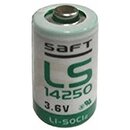If you flood your battery compartment bad enough to have electrolysis going on in there, I'd expect a 99% chance that will put your computer into GAMEOVER mode very fast. The story sounds much more like an alkaline batteries springing a leak. Still weird though, whatever the cause...
The key word I used is "partially" to refer to one of the ways you can flood a separate battery compartment dive computer. This can go on for days unnoticed because tap water is used to pressure test (only harm caused at this point is the discharge of the battery at a faster rate). However, when you take it to the sea and saltwater creeps into the battery dies pretty fast. Not to mention that the corrosion process attacks the + terminal. However, as you say, if you flood the battery compartment bad enough, is gameover very fast.
I imagine that we'll never know exactly what happened, but the discussion is interesting. As I mentioned, I didn't find any water in either battery compartment, just the brownish crud, that was moist, and the total absence of the positive terminals. I don't think that there was a sudden massive flood. Wouldn't I have found a puddle of water? I looked closely and didn't see any sign of moisture in the battery compartments when I got the computers back from the LDS for the battery change, but I suppose that there could have been a small amount from the pressure test that I didn't see.
Thanks





